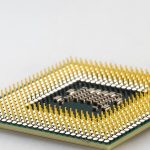
Reportedly, Microsoft (MSFT) is transferring some of its top artificial intelligence researchers from China to Canada, posing a potential threat to China’s technology talent pool. Microsoft Research Asia (MSRA), based in Beijing, has initiated the process of obtaining visas for relocating key AI experts from the Chinese capital to its institute in Vancouver. This move may impact approximately 20 to 40 staff members. Microsoft revealed that fewer Chinese employees will be migrating to Canada this year, as the tech giant establishes a new laboratory comprising experts from various parts of the world. According to two researchers from MSRA, they have recently received employment offers from Chinese internet companies. However, they have declined these offers and are now pursuing visas to move to Canada instead.
MSRA, founded by Taiwanese computer scientist Lee Kai-Fu, has played a significant role as a training hub for Chinese technology talents. Distinguished individuals who have passed through its ranks include Wang Jian, Chief Technology Officer of Alibaba; Xu Li, CEO of SenseTime; and Yin Qi, the head of the AI group at Megvii.
The company stated, “We are establishing a new lab in Vancouver that will be organisationally aligned with MSRA and designed to better engage with the engineering teams in Vancouver. The lab will be staffed with people from other MSR labs around the world, to include China.”
Microsoft has maintained a strong presence in China for over thirty years, distinguishing itself from other Western tech companies like Google, eBay, Facebook, and Uber, which have either faced competition or regulatory challenges leading to their exit from the country. Microsoft has successfully developed popular localized products such as its flagship Office and Windows software packages, as well as the Bing search engine.
Redmond, Washington-based American multinational technology company Microsoft (MSFT) develops, manufactures, licenses supports, and sells computer software, consumer electronics, personal computers, and related services. To learn more about Microsoft (MSFT) and to track their progress please visit the Vista Partners Coverage Page.

Vista Partners LLC (”Vista”) is a California Registered Investment Advisor based in San Francisco. Vista delivers timely and relevant insights via the website: www.vistapglobal.com with daily stories, weekly market updates, monthly macroeconomic newsletters, podcasts, & Vista’s proprietary equity and market research to help you stay informed and stay competitive. Vista’s mission is to invest partner capital while arming investors with a comprehensive global financial perspective across all market sectors. Vista also provides select issuers with actionable advice regarding fundamental development, corporate governance, and capital market directives.


Today, Lantern Pharma Inc. (NASDAQ: LTRN, $5.83, +7.96%), a clinical-stage biopharmaceutical company using its proprietary RADR® artificial intelligence (“AI”) and machine learning (“ML”) platform to transform the cost, pace, and timeline of oncology drug discovery and development, announced that the U.S. Food and Drug Administration (FDA) has cleared the investigational new drug (IND) application for LP-184, which is being developed for multiple advanced solid tumors and central nervous system (CNS) cancers. The first-in-human Phase 1A trial for LP-184 is anticipated to launch and dose its first patient during the current quarter. LP-184 is a novel, synthetically-lethal, small molecule that has been developed using insights from Lantern’s AI platform, RADR®. Lantern has been granted multiple Orphan Drug Designations by the FDA for LP-184 in pancreatic cancer, malignant gliomas, and atypical teratoid rhabdoid tumors (ATRT); in addition the FDA granted Rare Pediatric Disease Designation granted for LP-184 in ATRT. The cancer indications being pursued for LP-184 are estimated to have an annual market potential of $11-13 billion; $6-7 billion for solid tumors and $5-6 billion for brain and CNS cancers.

On June 8, Lantern announced it will be leveraging its AI platform, RADR®, in a research collaboration with Bielefeld University (Bielefeld, Germany) to develop antibody-drug conjugates (ADCs) with high therapeutic and antitumor potential. The collaboration will leverage insights from Lantern’s recently developed RADR® AI ADC module in combination with research from Professor Norbert Sewald, Ph.D., the principal investigator for Bielefeld and leader of Magicbullet::reloaded, a European consortium focused on developing novel drug delivery mechanisms, including ADCs. Outcomes from the collaboration are expected to pave the way for next-generation ADCs and other drug conjugates that are designed using AI and that can be developed with potentially higher efficacy, at a faster pace, and with significantly reduced costs. The collaboration with Bielefeld University (Germany) will be led by Professor Norbert Sewald, Ph.D., a leading expert in the synthesis of cryptophycins, development of ADCs, and the coordinator of the “Magicbullet::reloaded” consortium. Lantern is receiving an exclusive and worldwide option to license intellectual property from Bielefeld University related to the collaboration and IP generated from the collaboration. The global ADC market is currently over $4.0 billion and is projected to reach $14.0 billion by 2027.










































































































